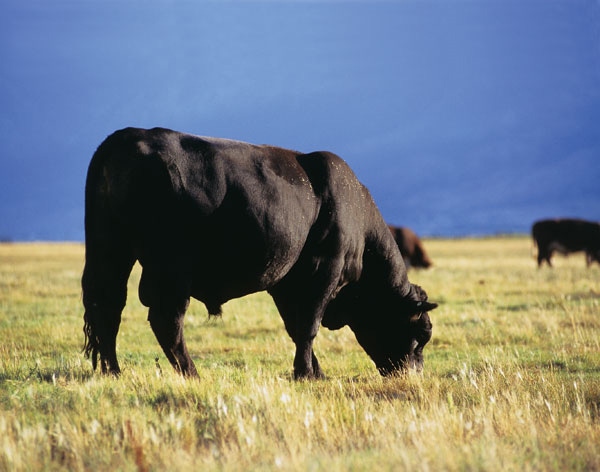Can genomic tests work for the commercial beef producer?
Beyond helping you know the genetic merit of the bulls you buy, genomic tests could help your management as well.

The short answer to the question posed in the headline is yes, but it depends.
It starts with being able to capture commercial-level data, says Matt Spangler, animal geneticist at the University of Nebraska Lincoln. Spangler was speaking at King Ranch Institute for Ranch Management (KRIRM) Lectureship on genetics recently in Denver. The lectureship, sponsored by Neogen, was held in Colorado through a partnership among KRIRM, Colorado Cattlemen’s Association, and Colorado State University.
Those data can be collected at a packing plant, feedyard or larger commercial cow-calf outfit. “Capturing large volumes of commercial level data not only enables more accurate EPDs, but it could also enable relationships to be quantified between commercial and seedstock animals assuming both seedstock and commercial animals are genotyped,” he says. Kind of a genomic pedigree, so to speak.
“This process could provide a much-needed feedback loop of information in the beef industry and, in return, allow for the potential of managing commercial animals based on genetic potential. I think that’s where we need to head from an industry perspective.”
Clearly, however, not all commercial cow-calf ranchers have the resources to link their genetics with downstream partners like a feedyard or packer. But there’s plenty of interest in getting pull-through demand for improved genetics.
Spangler states that coordination as mentioned above is a work in progress. However, commercial producers can leverage the power of genomics today by simply buying bulls with genomically-enhanced EPDs. “If we just know the sire, we’ve accounted for a quarter of the additive genetic differences between animals.”
But, he cautions, if commercial producers are going to step into the genomics realm, they need to have an idea of what they’re going to do the information before they spend money on the tests. “It’s discouraging to have somebody who spent a lot of money on testing come up to you after the fact and say, ‘Now what to do with it?’ Hopefully that question was asked before the investment was made.”
Spangler suggests considering parentage tests, if you’re a commercial producer who wants to dip your toes in the water of genomics testing. This will help you select the heifers to keep back by determining which ones are out of AI sires or sires that are more ‘maternally’ oriented.
There are also benefits for your steers. There are several online feeder profit calculators that use the genetic makeup of your herd to validate the predicted feedlot success of your feeder calves. Among them are the International Genetics Solutions Feeder Profit Calculator and AngusLink.
Bottom line, Spangler says, is that the value of genetics extends far past the seedstock sector and the selling of bulls. Similarly, the value of collecting data to use in genetics evaluations extends beyond the seedstock sector as well. Large gains in system-wide efficiency could be achieved with improved information and data sharing to enable more accurate selection and management decisions.
About the Author(s)
You May Also Like
.png?width=300&auto=webp&quality=80&disable=upscale)


